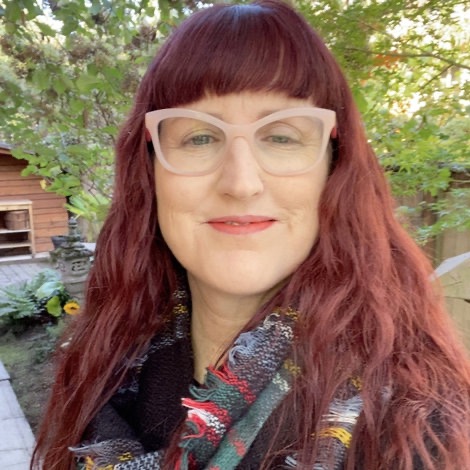Early childhood educator and op-shop lover Dr Angela Molloy Murphy brings a considered, philosophical approach to her work with children, families and educators.

Q: Tell us about your background
I came to Melbourne from Portland, Oregon in mid-2022. I had been teaching for the University of Melbourne online since June 2020 with that crazy time difference; it was such a relief to finally be here. I was drawn here because my research interests align with the early childhood scholars in the Faculty of Education, and I’m excited to be part of this amazing crew of people to think and research with. I am beginning to make connections across the Faculty.
I was an early childhood educator for 25 years and it’s my absolute love. It is not just childminding for me; I see it as a very significant collective exercise to be working and researching alongside young children.
Q: Which philosophies inform your research?
I belong to the Common Worlds Research Collective, which is an interdisciplinary group of researchers that considers people, animals, materials, and land as all entangled in earthly relation with each other. I first came across the idea as a philosophy major in college, and it resonated with my worldview and what I knew children to be capable of. Children are not separate from nature as they are often portrayed, and nature is not somewhere we "bring" them; they already exist as part of it, as do we.
Here in Melbourne, I am learning about Aboriginal ways of knowing and being. Children think a lot about the future of the world, and we can’t help them do that without foregrounding Indigenous ways of knowing or thinking about social and planetary justice.
Q: Could you share some of the projects you have worked on with children?
I’ve been working on a project in Portland with children aged 4–16 for quite some time. One of our recent activities was creating a multimodal installation for the Portland Winter Lights Festival. My role was to help the children bring their communal ideas about climate justice to life for an interactive public exhibit.
The idea was to exaggerate the presence of small beings that often go unnoticed, to remind people that humans aren’t the centre of the universe. We simulated an underground world, featuring creatures like giant glowing earthworms, and recorded sounds, like muffled footsteps and distant voices to play during the exhibit. They were clear that it should be spooky rather than cute to give people a feeling of awe about the more-than-human world they inhabit.
Q: What’s your advice to early childhood educators interested in taking a Common Worlds approach?
A relational approach to teaching is very rich, so I’d say start by thinking about your existing community relations and how to be in reciprocity with them. Things become magical when a whole community is raising children together and children feel held in that way.
If you have strong relations in outdoor education, for example, or in a particular neighbourhood, or with Indigenous people in your local area, then start there. If you don’t have lively connections, then work to make them. Take daily walks to notice the vibrancy of the land and the more-than-human community you belong to. Be humble.
Q: What do you do in your spare time?
My daughter and I are walking everywhere at the moment to explore Melbourne. We love old things and going to op shops. They tell you a lot about a place; its culture and secrets.